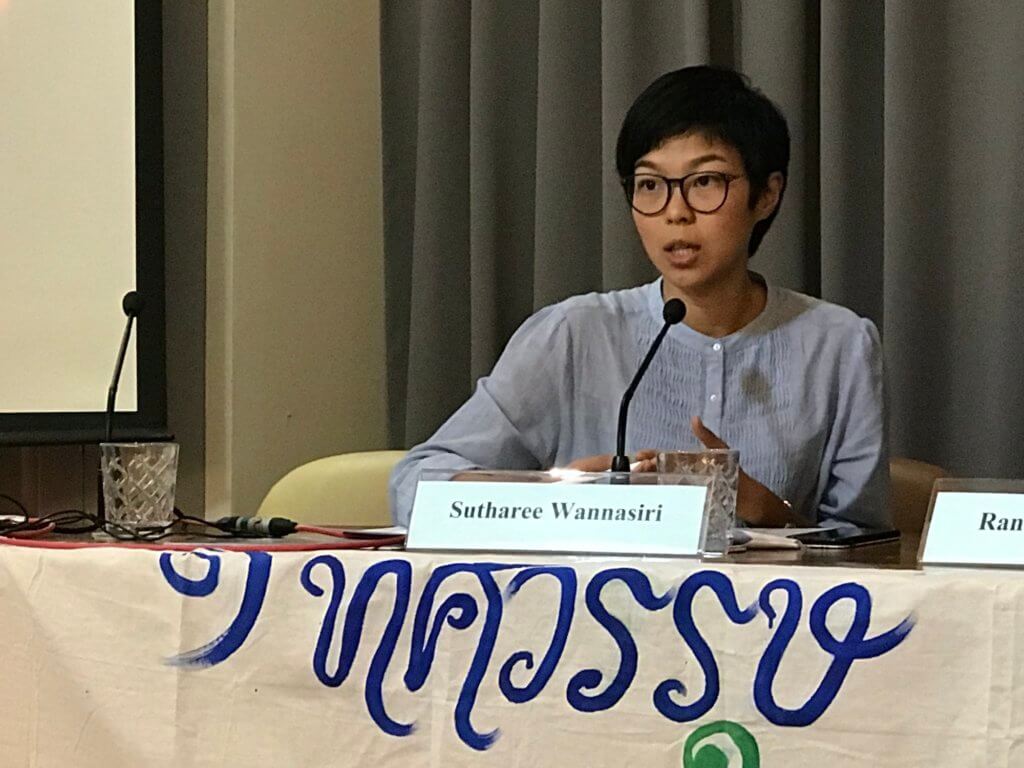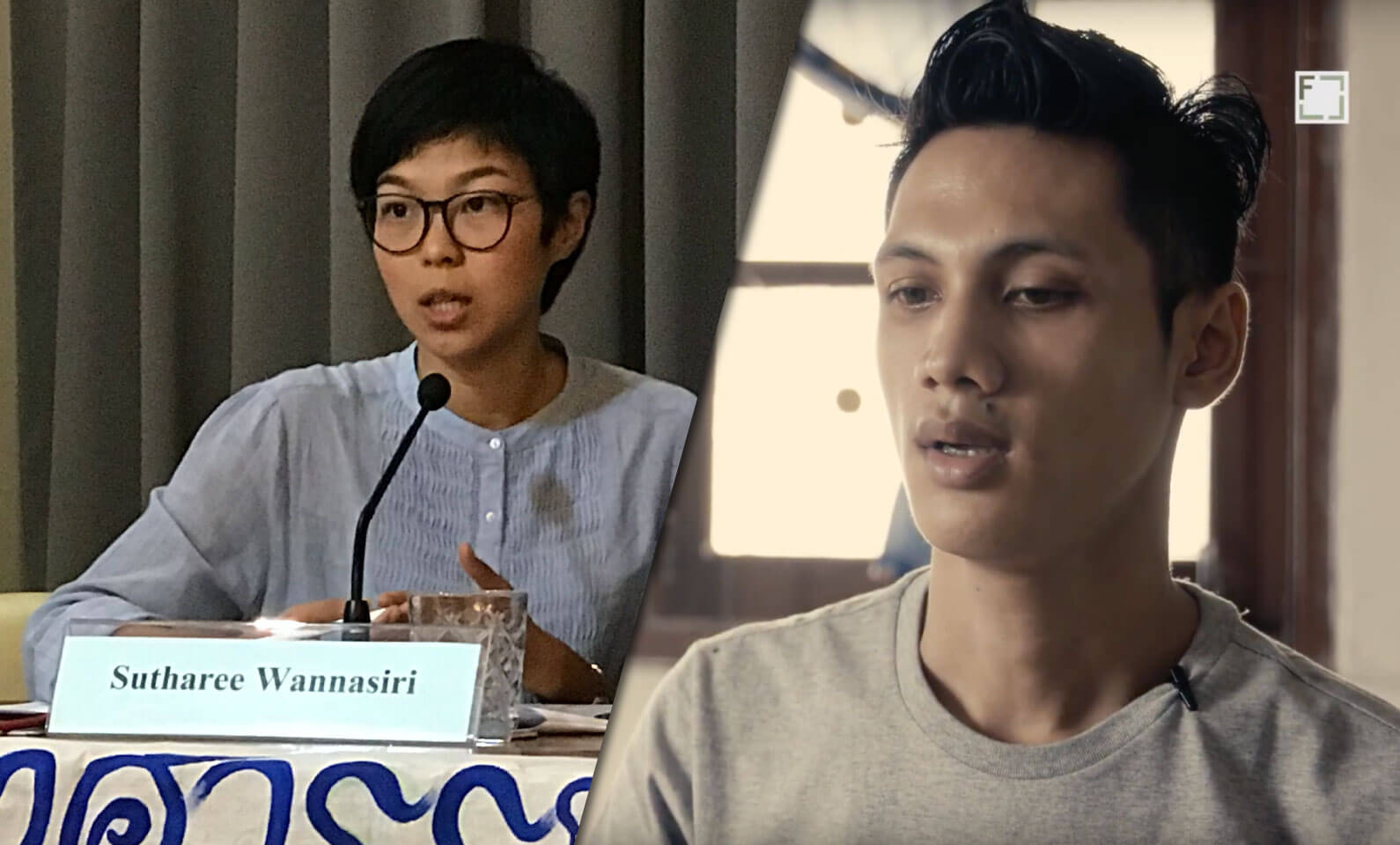Thai court confirms criminal defamation charges against Nan Win
(BANGKOK, March 12, 2019)—Thai authorities should protect human rights defenders from judicial harassment and immediately drop defamation complaints brought by poultry company Thammakaset Company Limited against Nan Win and Sutharee Wannasiri for their involvement promoting labor rights in Thailand, Fortify Rights said today.
On March 8, the Bangkok Criminal Court confirmed criminal defamation charges against Nan Win, a former employee at a Thammakaset-owned chicken farm in Lopburi Province who reported labor rights violations at the farm. The court scheduled his criminal trial to start on May 24. The court is expected to decide whether to proceed with a separate criminal case against Suthareee Wannasiri on March 25.
Today, Thailand’s Supreme Court will also consider an appeal filed by Thammakaset challenging an order to pay 1.7 million Thai Baht (US$51,470) in compensation to 14 former Thammakaset employees for labor rights violations. In January, the Supreme Court rejected a separate appeal by Thammakaset challenging the compensation order.
“Enough is enough—the complaints by Thammakaset against human rights defenders should be dropped and the order to provide compensation for labor rights violations should be enforced immediately,” said Amy Smith, Executive Director of Fortify Rights. “Thailand needs to take proactive steps to protect human rights defenders from reprisals and employees from labor rights violations.”
On February 14, 89 organizations, including Fortify Rights, submitted a joint letter to Prime Minister Prayut Chan-o-cha calling on the Thai government “to take immediate action to oppose and seek the dismissal of cases filed by Thammakaset” and to develop legislation “that fully protects employees, human rights defenders, and others from judicial harassment.”

The cases against Nan Win and Sutharee Wannasiri stem from complaints originally filed by Thammakaset in October 2018 and relate to their activities to bring attention to reprisals, including judicial harassment, against human rights defenders involved in exposing labor rights violations committed by Thammakaset.
Nan Win is one of the 14 migrant workers from Myanmar previously charged with criminal defamation by Thammakaset for reporting labor rights violations to Thai authorities. Nan Win now faces up to four years in prison and up to 400,000 Thai Baht (US$12,100) in fines for alleged violations under sections 326 and 328 of the Thailand Criminal Code for comments made during a Facebook-live press conference in Bangkok organized by Fortify Rights and his involvement in a Fortify Rights film. The 107-second film published by Fortify Rights on October 4, 2017 called on the Thai authorities to decriminalize defamation and drop criminal defamation charges brought by Thammakaset against 14 of its former employees.
Sutharee Wannasiri, a Thai human rights advocate, faces up to six years in prison and up to 600,000 Thai Baht (US$18,150) in fines for alleged violations under sections 326 and 328 of the Thailand Criminal Code as well as civil defamation charges for circulating the Fortify Rights film on social media.
In December 2018, the National Legislative Assembly adopted the amendment of Section 161/1 of the Thailand Criminal Procedure Code, allowing a court to dismiss and forbid the refiling of a complaint by a private individual if the complaint is filed “in bad faith or with misrepresentation of facts in order to harass or take advantage of a defendant.” The new amendment has not yet come into force.

In July 2018, the Don Muang Magistrate Court dismissed the criminal defamation charges against the 14 migrant workers, finding that the migrant workers filed the complaints of labor violations to the National Human Rights Commission of Thailand in good faith and without false information. Former Thammakaset employees reported a number of labor rights violations to the Thai authorities, including unlawfully low wages, failure to pay overtime wages, and confiscation of their identity documents, including passports.
In separate investigations conducted in 2016, the Lopburi Province Department of Labor Protection and Welfare (DLPW) and the National Human Rights Commission of Thailand both found evidence of labor rights abuses in the Thammakaset farm. In August 2016, DPLW ordered Thammakaset to pay 1.7 million Thai Baht (US$51,470) in compensation to the 14 former employees for violations of Thailand’s Labor Protection Act. Until today, the former employees have yet to receive compensation.
All charges in this case should be dropped, and the Government of Thailand should end the use of imprisonment or fines as penalties for acts of defamation, said Fortify Rights.
Under international law, imprisonment is considered a disproportionate punishment for acts of defamation. The 2017 Constitution of Thailand protects the right to freedom of expression as does Article 19 of the International Covenant on Civil and Political Rights, to which Thailand is a state party.
“The Thai authorities should make legislative moves to prevent judicial harassment,” said Amy Smith. “Thailand can do better to protect human rights defenders and ensure companies uphold human rights principles.”
